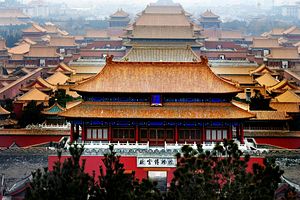As China’s power and status continue to grow, the big question for the whole world is how Beijing will use its newly acquired power to influence the world. It is safe to say that nobody within China has a satisfactory answer to this question. Still, we should pay serious attention to what Chinese scholars themselves say about China’s future ambitions. After all, outsiders often do not possess the necessary internal knowledge about China to depict an accurate picture of the country’s ambitions and foreign policy.
Within the field of Chinese foreign policy, the current generation of prominent international relations (IR) scholars — including Wang Jisi, Qin Yaqing, Yan Xuetong, Shi Yinhong, Wang Yizhou and others — have made great contributions to ameliorating the understanding of China internationally. But there will soon be a new generation of Chinese IR scholars who will likely shape the main debates that will come to guide Chinese foreign policy. It is time now to pay equal attention to them if we hope for a smooth relationship between China and the world.
By surveying some senior scholars in Chinese foreign policy, I have complied a list of the top 10 young IR scholars in China today. They are (in alphabetical order): Chen Yudan (Fudan University), Chen Zheng (Shanghai Jiaotong University), Li Wei (Renmin University), Lin Minwang (Foreign Affairs College), Liu Feng (Nankai University), Mao Weizhun (Nanjing University), Ren Lin (Chinese Academy of Social Sciences), Yang Yuan (Chinese Academy of Social Sciences), Yin Jiwu (Beijing Foreign Studies University), and Zuo Xiying (Renmin University).
These scholars represent a diverse group with very different research interests and theoretical backgrounds. Their analyses of and recommendations for Chinese foreign policy, therefore, also vary.
Among them, Lin Minwang, Liu Feng, Yang Yuan, and Zuo Xiying are security experts and, all of them, more or less, follow a realist tradition in analyzing China’s foreign relations. That is to say, their analyses usually start with China’s national interests and then proceed to discuss how China and other countries can seek common ground while preserving their differences. However, none of them is an offensive realist like the renowned U.S. scholar John Mearsheimer. They all caution against an overly assertive Chinese foreign policy, partly because such a policy will bring more harm rather than good to China’s national interests.
Given that China’s rise is not just a matter of security, other young scholars focus their attention on more ‘low politics’ issues, such as human rights norms, global environmental governance, the refugee crisis, and so on. For example, Chen Zheng has studied how China’s attitudes toward the norm of “responsibility to protect” has changed over time. Similarly, Ren Lin has explored the concept of non-traditional security in global governance. Her field echoes the rise of China in global governance studies in a way.
Li Wei from Renmin University is an expert on international political economy, especially on the internationalization of the renminbi and its implications for the U.S.-led global order. Needless to say, such work is of critical importance to China’s future as its currency has been gradually gaining influence across the world, evidenced by its recent inclusion into the International Monetary Fund’s reserve currency basket.
Chen Yudan from Fudan University is more interested in traditional Chinese culture and seeks to understand how non-realist ideas and traditions shape Chinese foreign policy. This is very much a constructivist approach to international politics, which is also gaining popularity in China. Alexander Wendt’s path-breaking Social Theory of International Politics was translated into Chinese in the early 2000s by Qin Yaqing, of the China Foreign Affairs University.
Last but not least, Yin Jiwu, from Beijing Foreign Studies University, adopts a unique approach to the study of Chinese foreign policy. He is a major scholar of psychological frameworks in understanding how Chinese leaders develop foreign policies.
It is clear from the above brief survey that China’s young IR scholars are just as diverse as their American counterparts in terms of their research interests, theories, and methods. Indeed, some of them received their doctoral training in the United States and Europe while others were trained at China’s top universities. Given time, they will collectively play an important role in contributing to China’s peaceful rise and ensuring Beijing’s continued role in forging a harmonious international society.

































